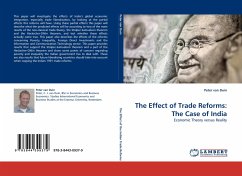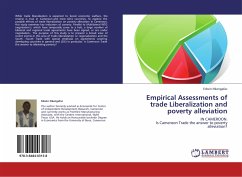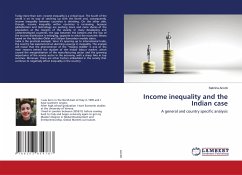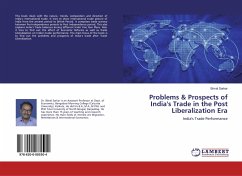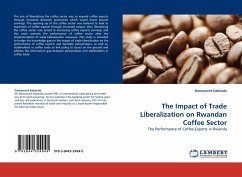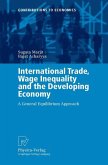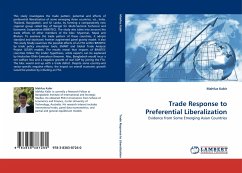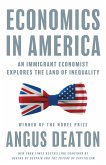This paper will investigate the effects of India's global economic integration, especially trade liberalisation, by looking at the partial effects this reforms will have. Using these partial effects this paper will describe what the predicted effects will be according to two of the main results of the neo-classical trade theory, the Stolper-Samuelson theorem and the Heckscher-Ohlin theorem, and test whether these effects actually came true. This paper also describes the effects of the reforms concerning Poverty, Inequality, Foreign Direct Investments and the Information and Communication Technology sector. This paper provides results that support the Stolper-Samuelson theorem and a part of the Heckscher-Ohlin theorem and show some points of concern regarding poverty and inequality the Indian government has to deal with. These are also results that future liberalising countries should take into account when copying the Indian 1991 trade reforms.
Bitte wählen Sie Ihr Anliegen aus.
Rechnungen
Retourenschein anfordern
Bestellstatus
Storno

